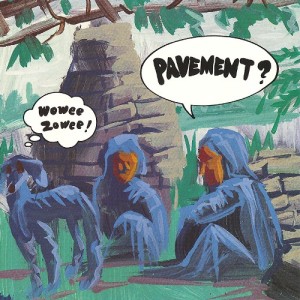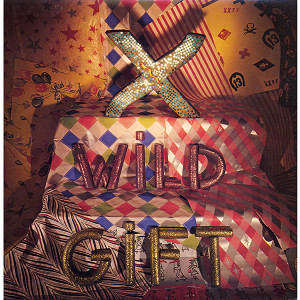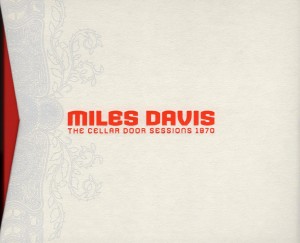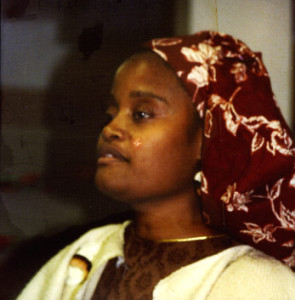Link to a regulatory dissenting statement by Kara M. Stein:
Month: June 2015
Justin Elliott – How the Red Cross Raised Half a Billion Dollars for Haiti and Built Six Homes
Link to an article by Justin Elliott of ProPublica:
“How the Red Cross Raised Half a Billion Dollars for Haiti and Built Six Homes”
Pavement – Wowee Zowee
Pavement – Wowee Zowee Matador OLE 130-2 / 45898-2 (1995)
I have mixed feelings about Wowee Zowee. It has never had the same impact on me as other Pavement albums. The band always seemed to be at their best when they took an assortment of intriguing influences and put their own indelible stamp of personality on the results. But this album…just doesn’t seem to come together as much as the best ones (Slanted & Enchanted, Brighten the Corners). Scott Kannberg has suggested this album was a little rushed, and might have been different if the band had more time to work on it. That seems like a compelling description. Regardless, this one comes across as one of those mid-career rock albums from a band that has had some success but maybe isn’t ready to just settle on an established formula. So the result is an eclectic bricolage, with various styles and influences on display (comparisons being The Mothers of Invention‘s Freak Out!, The Beatles‘ White Album, Stevie Wonder‘s Songs in the Key of Life, The Clash‘s London Calling, etc.). While the raw materials are certainly here, and there is a great song (“Rattled By the Rush”) and a few more that are really good (“My Best Friend’s Arm,” “Grave Architecture”), overall the band fails to make the best of it. If you like this, you’re probably the type to look past the faults to its assorted charms, and, if you don’t like it, you probably can’t avoid getting hung up on the album’s faults. I fall more in the latter camp.
Miya Tokumitsu – Why We Should Listen to Frank Lloyd Wright
Link to an article by Miya Tokumitsu:
“Why We Should Listen to Frank Lloyd Wright”
Basically, an endorsement of Thorstein Veblen‘s economics.
Bonus link: “The FBI vs. Frank Lloyd Wright”
Michel Husson & Stephanie Treillet – Liberation Through Vacation
Link to a translation of an article by Michel Husson & Stephanie Treillet:
X – Wild Gift
X – Wild Gift Slash SR-107 (1981)
There is something that comes out in people who break the rules. That something can be powerful. It has faded since the time X put out Wild Gift, but it’s still possible to conjure it up while this record is on. All it takes is a spark. When beyond the rules there is a clear shot at freedom, then the rules become, along with youth itself, a fuel for those passionate activities that survive measurements of days, toil and bothers. It’s a precious fuel, which spoils easily with any attempt to store it away. So, the music of Wild Gift isn’t groundwork or penance for something else. It is a fire burning now. Now. NOW! The effects are immediate. The effects are spectacular.
X’s music embodies a lifestyle — a little haggard, a little idyllic — that goes against the norm. Wild Gift sounds less obviously “punk” than its predecessor, Los Angeles. But the same fury is still there, if one cares to notice. What Wild Gift has that Los Angeles doesn’t is the open-minded welcoming of any new genre, hook, or snippet of prose with forward momentum. Occasionally, detours into cha-chas and other novelty dance rhythms (“Adult Books” and “Year 1”) threaten to break the album apart, but always the band pulls together again — help often coming in the form of dependable rockabilly riffs. If Wild Gift, and punk rock in general, have one thing to offer, it’s bringing together the disparate stains of counterculture for a few hotly productive moments, for a serendipitous turning around. The coming together itself isn’t the achievement. It’s what happens after. Total realignment.
Yes, X had conventional musical talent. One of the grand ironies of the great ’77 punk explosion was that bands without musical talent — conventional or otherwise — could put on good shows, but they usually couldn’t make decent records. X could blend humor, heartbreak, desperation, longing, and fervor in a way that doesn’t force its way to the front. The experiences of surviving L.A. are in there. By completely avoiding any prophesizing, X cement their own outlook without a need for justification. Like “Some Other Time” blathers: “we can draw the line some other time.” If nothing else, Wild Gift represents people being people, and realizing that only later.
Henry Giroux and Vince Cherniak – Inside the Belly of the Beast
Link to an interview with Henry A. Giroux by Vince Cherniak:
Jeff Bryant – The Great Charter School Rip-Off
Link to an article by Jeff Bryant:
“The Great Charter School Rip-Off: Finally, the Truth Catches Up to Education ‘Reform’ Phonies”
Miles Davis – The Cellar Door Sessions 1970
Miles Davis – The Cellar Door Sessions 1970 Legacy C6K 93614 (2005)
I have some opinions on Miles’ electric period, and on his early 1970s electric period in particular (like what we have here), that might differ from the conventional wisdom. I think the 1970s might have been Miles’ most consistently interesting period. I think you can get more from a single song in this period that you get in entire albums the man put out in the 1950s. There is an open-mindedness, a fluidity that I don’t think any other recording artist has ever really achieved on such a massive scale. With this particular band, I think there a number of interesting developments that make this set stand out. These are probably the best recordings Keith Jarrett has ever made. I know that he talks trash about playing electric with Miles, but frankly, his later solo stuff is just plain boring. Then there is Gary Bartz. Compared to the next few saxophonists Miles used up through his silent period, I think Bartz was the most interesting. He played these long, extended lines — I would even call them thin lines too. I dig ’em. The clarity of his lines doesn’t overwhelm the songs, but provide a constant thread throughout his solos despite the looseness of the accompaniments. I don’t think anyone else really took that approach on a sax in an electric setting. It adds a cohesiveness by making it difficult to focus on any little bit of the music for too long. Bartz also could blast his way through a funky, rock-oriented setting without being drowned out better than Miles’ previous sax man Wayne Shorter.
Another area of disagreement with the conventional thinking for me is that I think Miles and Teo Macero did a good job of editing material for release. People complain about the At Fillmore: Live at the Fillmore East album being heavily edited, but I think the final results sound great, whereas some of the unedited material from roughly the same period (In Concert: Live at Philharmonic Hall) sounds terribly unfocused. And I think this plays into my belief that Miles was actually fine tuning his approach through the 1970s. He was more consistent just before his temporary retirement than when the 70s opened. So, getting back to this Cellar Door set, I think it has a very loose, jammy sound to it. Occasionally, the band muffs something or other. Bassist Michael Henderson sometimes hasn’t fully integrated himself into the band until some of the later sets. You also might not call this the strongest playing from Miles himself, at least not consistently. But no matter. I think this is very enjoyable and interesting stuff. Lots of energy. Perhaps the edited, reorganized presentation that ended up forming most of Live-Evil sounds just a bit better on the whole. But this unedited presentation still sounds fine — actually better than just fine most of the time. With adequate time to sit back and enjoy this whole damn collection on its own terms, with the occasional missteps and the more tentative early sets all included, the band still can cook. That’s what it was always about.
Kelan Phil Cohran & Legacy – African Skies
Kelan Phil Cohran & Legacy – African Skies (1999)
An eclectic and cool album from shamefully neglected Chicago musician Phil Cohran and his group Legacy. Cohran was a one-time member of Sun Ra‘s Arkestra and a co-founder of the long-running and influential AACM organization. African Skies was recorded live in 1993 at the Adler Planetarium in Chicago. “White Nile” and “Blue Nile” are calm and fragile songs, with lots of strings, including harps — reminiscent of Brother Ah‘s Key to Nowhere. “Cohran Blues” has an almost rag-style beat, and it probably wouldn’t surprise if Leon Redbone had popped in for a vocal. “The Dogon” features Cohran on his Frankiphone (his custom modified African thumb piano), which will take some listeners back to songs like “The Minstrel” from Cohran’s classic On the Beach with the Artistic Heritage Ensemble. “Kilimanjaro” gets to that distinctive Cohran rhythmic style. All this music takes influence from around the world. It’s an approach a little like Don Cherry but more composed. It’s wonderful to see so many Cohran recordings in print on CD. These things are more available now than ever.




